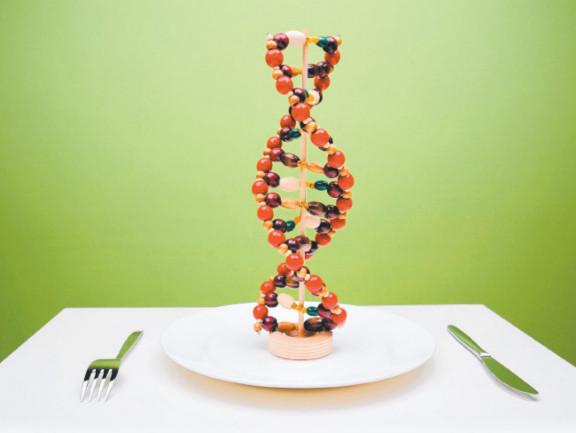|
We all envy that one friend who weighs less even when he/she consumes calorie-dense foods all the time and do not perform any physical activity. It’s in the gene after all!
A new study has found that apart from diet and physical activity, genes are the ones that determine how easily you gain or lose weight. While there have been various studies that link genetic variations that are merely ‘flags’ on the genome with obesity and BMI, specific genes linked to obesity have not been found until now. The study collected genetic data from over 7,00,000 individuals and 125 studies. Fourteen genetic variations in 13 genes were identified and this included a risky copy variation which can make the individual weigh 7 kilograms more in comparison to individuals who do not carry the variation. Known as the MC4R, this gene is present in 1 in 5,000 individuals and lacks the protein needed to inform the brain to stop eating once hunger is satisfied. Another gene called GIPR is affected by two variants which make a person weigh 2 kilograms lesser. Almost 1 in 400 persons are carriers of either variant. Eight of the 13 genes detected affected obesity values and further studies might help us identify their working procedure that have implications on body weight. The prominent discovery of the study is genes that are important for the neuronal control of body weight. By neuronal content we mean reaction of people to food intake, hunger, satiety, etc. People with these genes also find it difficult to stop eating or eat less compared to others. The study considered the genes as one single group rather than dealing with it individually. By doing this, we can confirm the ones that are crucial for controlling body weight and have a strong genetic support. By combining the knowledge of both, genes and the biological pathway through which they work, researchers feel that they are closer to find out the underlying reason for the easy weight gain of some people over others. This is critical for effective treatment options too. By this, we do not mean that weight loss/weight gain is a natural process that is inevitable. Various other factors such as eating habits, lifestyle and physical activity determine weight loss/gain in an individual. Although genes may trigger obesity risks, staying on a healthy weight is in the hands of each person. If he/she diligently follows a healthy weight loss/gain program adhering to all the conditions implied, he/she is sure to achieve his/her goal. Comments are closed.
|
AuthorDietitian & Nutritionist Dr. Nafeesa Imteyaz. Archives
September 2018
Categories |
- Home
- Written Testimonials
- Consult
- Clinics
- Blogs
-
Diet & Nutrition
- Diabetes Reversal
- IVF IUI not needed for PCOS PCOD Infertility
-
Medical Nutrition
>
-
Disease & Conditions
>
- Infertility | PCOS
- Diabetes Mellitus
- Cholesterol
- Hypothyroid
- Kidney Problems
- Hypertension
- Cardiovascular Diseases
- Liver Diseases
- Gastro intestinal disorder
- Cancer
- Metabolic Disorders
- Orthopedic Disorders
- Eating Disorders
- Dietary Recall
- Weight Record Filled By Clients
- Online Payment Transaction Details
- Online Clients Weight Check Form
- Our Program Package Service Charges
- Weight Record 2017 Clients
- Measurements sent by Clients
- Terms & Conditions Of Payment
- Thanks. Your Form is Submitted
- Video Testimonials
- Lifestyle & Wellness
- Lifestyle & Wellness Blog
- Allergy & Intolerance
- Weight Loss / Gain
- Weight Loss / Slimming Blog
-
Disease & Conditions
>
- Life Cycle Nutrition >
- Sports Nutrition >
- Integrity in Nutrition
- Knowledge Centre
© COPYRIGHT 2022. ALL RIGHTS RESERVED. FRST HEALTHCARE PVT LTD.
Dr. Nafeesa Imteyaz of First Eat Right clinic, is the Best Dietitian Nutritionist in Bangalore. Best Dietitian Nutritionist in Pune. Best Dietitian Nutritionist in Hyderabad. Best Dietitian Nutritionist in Chennai. Best Dietitian Nutritionist in Mumbai. Best Dietitian Nutritionist in Delhi. Best Dietitian Nutritionist in Kolkata.


 RSS Feed
RSS Feed